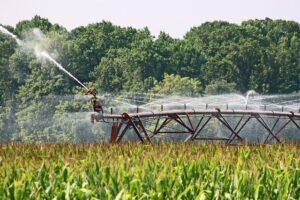Attitude formation for sustainable agricultural water management
The Ministry of Agriculture received a non-refundable European Union grant from the Recovery and Resilience Facility (RRF) EU financial fund for the implementation of an attitude-shaping reform project. The project with the identification number RRF-4.2.1-23-2023-00001 is implemented within the framework of the Recovery and Resilience Plan of Hungary, at a cost of approximately HUF 172.25 million.

(Photo: Pixabay)
The topic areas of attitude formation are focused primarily on water-saving irrigation methods, the importance of keeping water in place, the possibilities of mitigating climate-related damage experienced during everyday agricultural practice, and the benefits of the opportunities inherent in communities.
In connection with the subsidized project, the focus is on the widest possible information and training
It is extremely important that the current and future generations of agricultural water users are aware of the importance of sustainable water management and have knowledge of the modern solutions necessary for implementation.
Agriculture is the sector most exposed to climate effects
As a result of climate change, the amount of precipitation decreases, but at the same time its intensity increases, so that the average temperature rises. As a result of climate change, it is no longer sufficient to apply appropriate agrotechnics for crop safety, but it is also necessary to ensure the conditions for water retention and water-saving irrigation farming. Agricultural producers are typically burdened by the costs of implementing new water-saving developments, but the costs of investments can be reduced within the framework of community cooperation. The purpose of the planned information and training sessions is to draw attention to long-term planning and to present solutions that promote sustainable agricultural water use.
Attitude formation within the framework of Hungary’s Recovery and Resilience Plan contributes to the strengthening of social and territorial cohesion. The positive effects of the undertaken reform on nature conservation, forest management, industry and agriculture contribute to the catch-up of the countryside.
AM
Related news
dm welcomes customers with stable prices and a superb price-value ratio
🎧 Hallgasd a cikket: Lejátszás Szünet Folytatás Leállítás Nyelv: Auto…
Read more >ESG: the majority don’t ask for postponement, preparedness level is increasing
🎧 Hallgasd a cikket: Lejátszás Szünet Folytatás Leállítás Nyelv: Auto…
Read more >Related news
How Coca-Cola plans to build more billion-dollar brands
🎧 Hallgasd a cikket: Lejátszás Szünet Folytatás Leállítás Nyelv: Auto…
Read more >Brits Embrace At‑Home Celebrations While Germans Cut Back on Valentine’s Day Spending
🎧 Hallgasd a cikket: Lejátszás Szünet Folytatás Leállítás Nyelv: Auto…
Read more >








